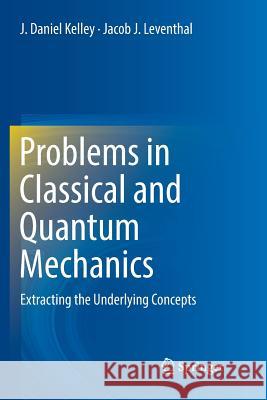Problems in Classical and Quantum Mechanics: Extracting the Underlying Concepts » książka
topmenu
Problems in Classical and Quantum Mechanics: Extracting the Underlying Concepts
ISBN-13: 9783319835570 / Angielski / Miękka / 2018 / 368 str.
Kategorie BISAC:
Wydawca:
Springer
Język:
Angielski
ISBN-13:
9783319835570
Rok wydania:
2018
Wydanie:
Softcover Repri
Ilość stron:
368
Waga:
0.53 kg
Wymiary:
23.39 x 15.6 x 2.01
Oprawa:
Miękka
Wolumenów:
01
Dodatkowe informacje:
Wydanie ilustrowane











